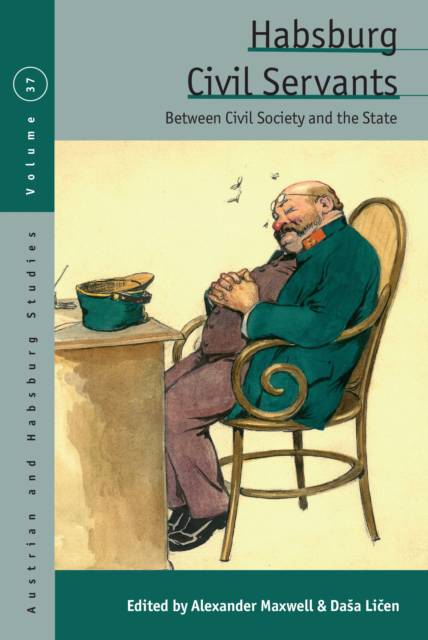
- Afhalen na 1 uur in een winkel met voorraad
- Gratis thuislevering in België vanaf € 30
- Ruim aanbod met 7 miljoen producten
- Afhalen na 1 uur in een winkel met voorraad
- Gratis thuislevering in België vanaf € 30
- Ruim aanbod met 7 miljoen producten
Zoeken
Habsburg Civil Servants
Between Civil Society and the State
€ 217,95
+ 435 punten
Omschrijving
The Habsburg Empire's development into a modern nation state was, necessarily, bound up with the emergence of a vast bureaucratic network of civil servants. Responsible for addressing diverse social problems in areas such as education, public transportation, and health services, these officials enabled the Habsburg monarchy to maintain rule over geographically disparate domains. While Habsburg civil servants were often maligned as instruments of an oppressive regime, this volume provides a new perspective on their lives during the nineteenth century, spotlighting how they simultaneously constituted and challenged the state. In doing so, Habsburg Civil Servants reconceptualizes our understanding of the boundary between the realms of the state and the public.
Specificaties
Betrokkenen
- Uitgeverij:
Inhoud
- Aantal bladzijden:
- 232
- Taal:
- Engels
- Reeks:
- Reeksnummer:
- nr. 37
Eigenschappen
- Productcode (EAN):
- 9781805399711
- Verschijningsdatum:
- 1/05/2025
- Uitvoering:
- Hardcover
- Formaat:
- Bibliotheekbinding
- Afmetingen:
- 152 mm x 229 mm
- Gewicht:
- 480 g

Alleen bij Standaard Boekhandel
+ 435 punten op je klantenkaart van Standaard Boekhandel
Beoordelingen
We publiceren alleen reviews die voldoen aan de voorwaarden voor reviews. Bekijk onze voorwaarden voor reviews.






